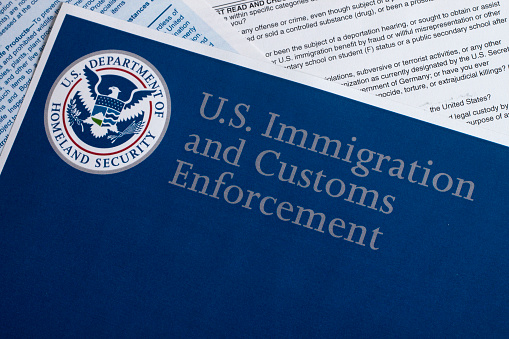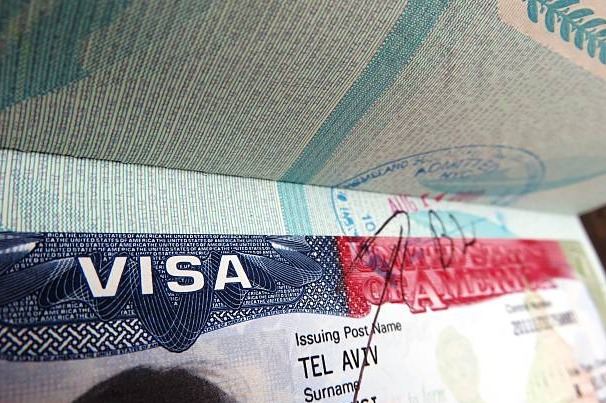



is easy with the Majors Law Group by your side. Hiring an experienced and dedicated immigration attorney may be essential to a successful outcome. Whether you are in Arizona, another state or even outside of the United States, we are dedicated and successful Phoenix immigration attorneys helping you achieve your American dream.
Individuals seeking immigration benefits have the burden of proving they are eligible to receive the immigration benefit requested. The burden on the individual is to meet the required standard of proof. A standard of proof relates to the persuasiveness of the evidence necessary to meet the eligibility requirements for a particular benefit.
If the applicant is unable to prove his or her eligibility for the immigration benefit by a “preponderance of the evidence,” the immigration officer may request additional evidence or deny the application. “Preponderance of evidence” is a legal term meaning it is more likely than not that the facts presented are true, also known as a 51% threshold. In cases in which admissibility is at issue, the applicant must demonstrate that he or she is clearly and beyond doubt entitled to be admitted and is not inadmissible.
Immigration benefits sought may be discretionary or non-discretionary. If an immigration benefit sough is non-discretionary, then USCIS must so long as the applicant satisfies all eligibility requirements. If the immigration benefit sough is discretionary, the immigration officer will consider the totality of circumstances to determine if the applicant is entitled to a favorable decision.
If you have concerns about your immigration matter, the Majors Law Group has the knowledge and experience to ensure your case is approved!
What We Cover
A Phoenix Immigration Attorney with Traditional Values & Modern Techniques. Find Out How Our Immigration Lawyer in Phoenix Can Help.

Request for Evidence (RFE)
USCIS policy instructs immigration officers to issue a Request for Evidence (RFE) in cases involving insufficient evidence before denying such case. The reviewing immigration officer has an obligation to request additional evidence which could overcome a finding of ineligibility, unless the officer believes there is no possibility that additional evidence could establish eligibility. A Request for Evidence is another opportunity to establish eligibility for the immigration benefit sought.

Notice of Intent to Deny (NOID)
A Notice of Intent to Deny is issued by the reviewing immigration officer if the evidence submitted is insufficient to grant an approval of the immigration benefit sought. It is yet opportunity to for the applicant to submit additional evidence or arguments to convince USCIS that a denial should not be issued.
Denial of Your Immigration Benefit
If USCIS or the Administrative Appeals Office (AAO) issues an unfavorable decision, the applicant may file a motion to reopen the proceeding, a motion to reconsider the decision, or the applicant may file a combined motion to reopen and reconsider, if applicable.
Motion to Reopen
A Motion to Reopen should be based on corroborating evidence of new facts. A motion to reopen must state new facts and be supported by documentary evidence. Resubmitting previously provided evidence or reasserting previously stated facts will not meet the requirements of a motion to reopen.
Motion to Reconsider
A Motion to Reconsider should establish that the denial issued by the reviewing agency (USCIS or AOO) is based on an incorrect application of law or policy, and that an approval should have been granted based on the evidence in the record at the time of the decision. You should not present new facts or evidence in a motion to reconsider as it will not be considered by the reviewing agency.
USCIS also states that a motion to reconsider must also be supported by a controlling precedent or an adopted decision, statutory or regulatory provision, or statement of USCIS or Department of Homeland Security policy

Schedule Your Initial Consultation Today
The process of becoming a U.S. citizen if you were born outside the U.S. is referred to as naturalization. To be eligible for naturalization, you must have acquired legal permanent residence (green card) for a certain period of time. Generally, you must have been a permanent resident for five years, or three years if you attained your legal permanent resident status via your U.S. citizen spouse.
In addition, you must meet the following criteria:
– 18 years of age or older at the time you file the application;
-Continuous residence and physical presence in the United States
-Able to read, write and speak English
-Demonstrate good moral character
-Demonstrate a knowledge and understanding of U.S. history and government
-Demonstrate a loyalty to the principles of the U.S. Constitution
-Willing to take the Oath of Allegiance
You are required to pass an English and civics test during the naturalization process. There are exception available for certain individuals based on age or medical condition. You may be exempt from the English language requirement if you are either age 50 and older and have resided in the U.S. for 20 years, or you are 55 or older and have resided in the U.S. for 15 years. You are still required to pass the civics test, unless you qualify for a medical disability exception certified by a medical doctor.
Once USCIS approves your application for naturalization, you will be invited to a ceremony in which you must take the Oath of Allegiance to the U.S. and you will officially become a U.S. citizen.


Dedicated Phoenix Immigration Attorney With Real Answers
Dedicated Team
We are devoted to our clients & aggressively pursue every option available to you.
5 Star Reviews
Our standard of excellence is fueled by a desire to protect your immigration rights.
8 Years Experience
We're qualified and experienced to take on your immigration case.
Free Consultation
Schedule your consultation with our Phoenix immigration lawyers today!
